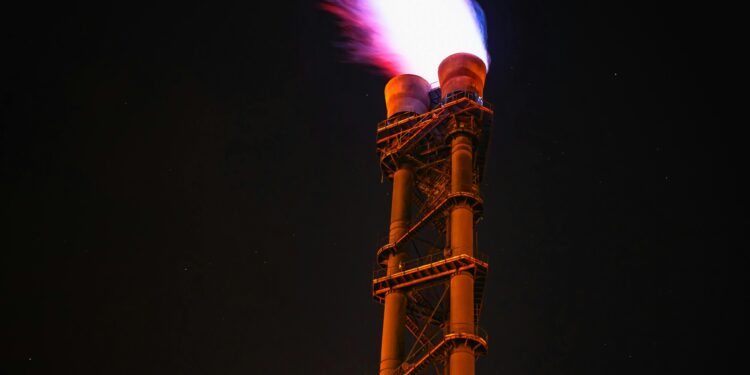The Australian government had in Thursday, announced its plans to keep burning natural gas beyond 2050. The country had said that its reliance on fossil fuel would not stop its vow to reach net zero emissions in the next 30 years.
Australia’s Resources minister, Madeleine King has said that gas “will remain an important source of energy” in Australia, causing an outrage among environmental groups which have branded the Future Gas Strategy as a“climate disaster”.
Liquid natural gas is Australia’s second-largest export valued to be worth about $60 billion last year, according to government estimates.

Gas also accounts for almost one-third of Australia’s energy consumption, while renewables make up about 8.9%.
The country has however, said it was committed to cutting carbon emissions by 43% by 2030, on a path to reaching net-zero emissions by 2050.
It is noteworthy to mention that Australia’s carbon dioxide emissions per person are among the highest in the world at 15.3 tonnes, exceeding U.S. levels, according to the World Bank.
What They’re Saying:
“Gas is needed through to 2050 and beyond,” King had said, with the claim that it would reinforce the economy and stabilize the country’s electricity grid as renewable sources of energy were increased.
The Australian Prime Minister, Anthony Albanese had also encouraged the plan, saying,
“It is consistent with the long position that we have held, my government is committed to a net-zero future. Gas power generation is something that firms renewables.”
However, environmental groups have lambasted the strategy.
Jennifer Rayner, an advocacy head for the Australian non-profit Climate Council, had remarked that the government needed to choose between gas or renewable energy.
“It can’t do both,” she had said.
“More gas is a bad bet, against a safe climate future and a thriving clean economy.”
Why It Matters:
Australia had previously made a promise to reach net zero emissions by 2050, and just recently, announced its plans to rebuild its economy with massive investments on clean energy production. But its decision to continue burning natural gas until 2050 and beyond is driven by several factors:
- Economic Dependence: Australia’s liquid natural gas exports are a huge contributor to its economy, and since it is valued at around $60 billion yearly, the country relies on these exports for revenue and economic stability.
- Energy Consumption: Gas accounts for almost one-third of Australia’s energy consumption, which means that it is very important to the country’s energy sector.
- Grid Stability: Gas-fired power generation is seen as an important act for stabilizing Australia’s electricity grid, especially as renewable energy sources are being increasingly integrated. Gas is also used as a reliable backup for when renewable energy generation fluctuates.
Bottom Line:
Australia faces significant challenges in reducing its carbon emissions, as shown by its high per capita CO2 emissions and while using renewable energy is its end-game solution, the transition away from fossil fuels is complex and requires careful planning.

















